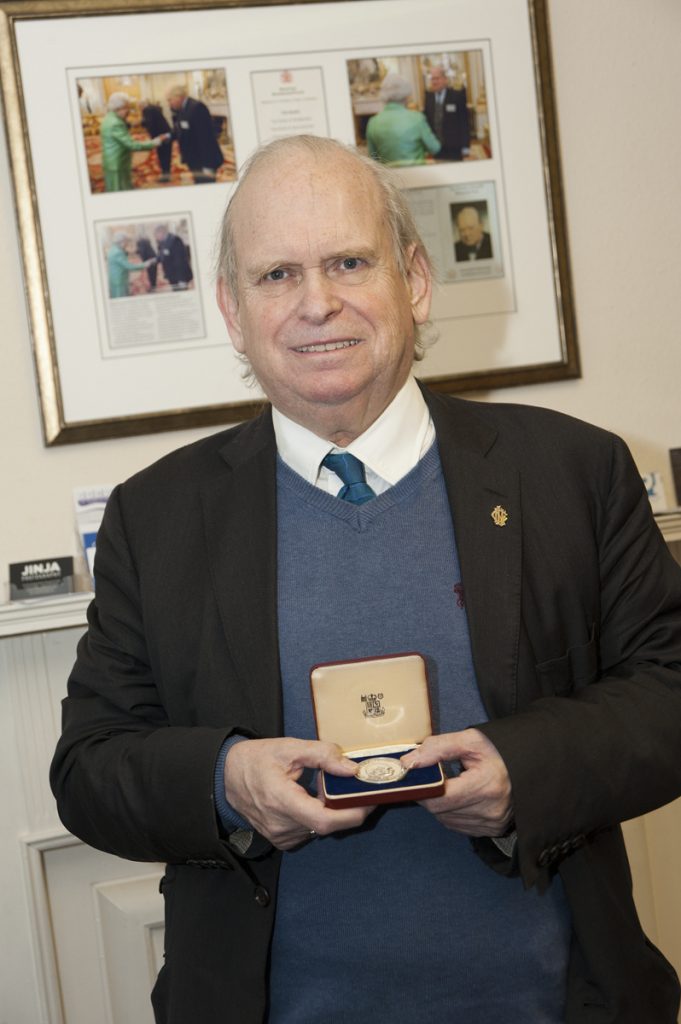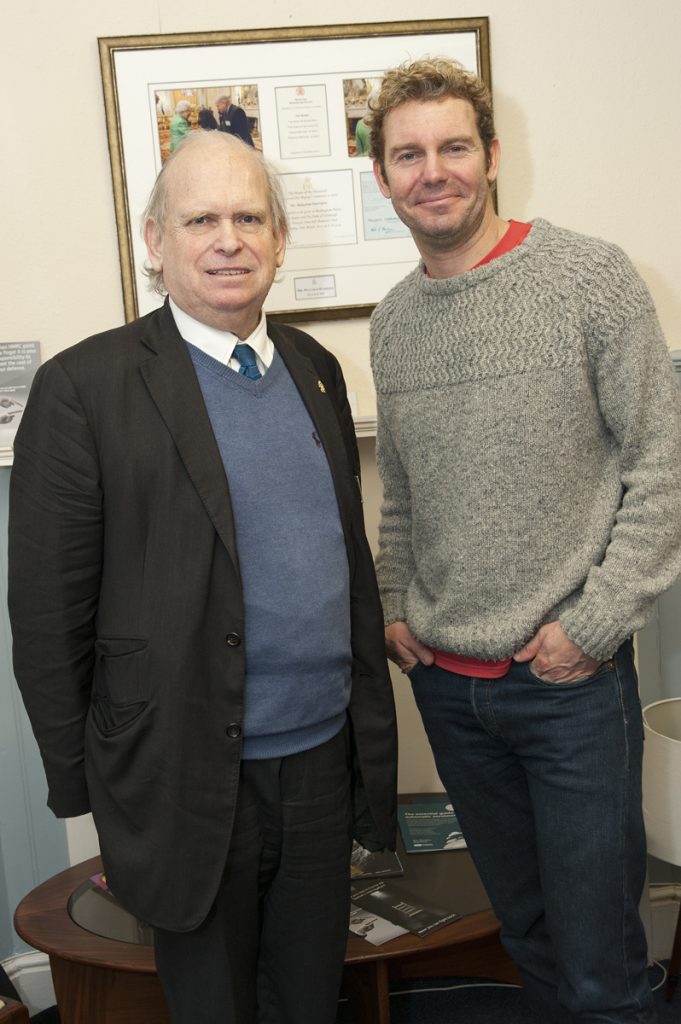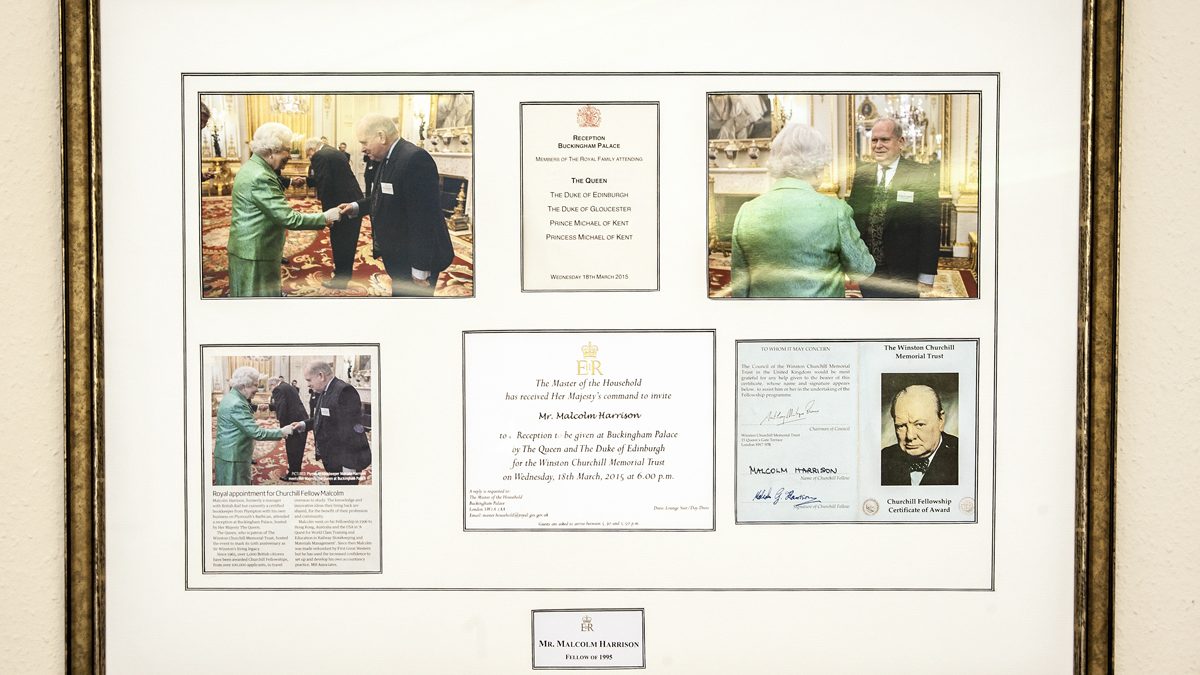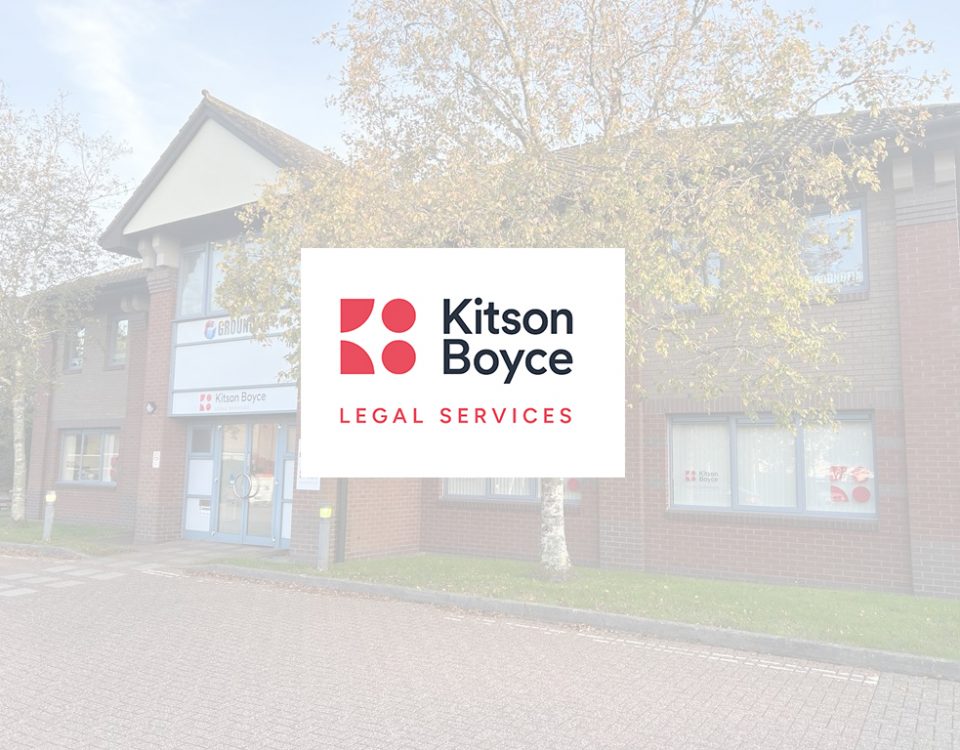Business Profile: Winston Churchill Memorial Trust

How to up the Value of your Property
26th March 2019
Business Profile: Kenmare HR
26th March 2019View the Winston Churchill Memorial Trust’s Business Profile in our magazine on pages 34-35, or keep scrolling to read below:
Every year, the Winston Churchill Memorial Trust awards 150 Fellowships. These fund outstanding individuals to travel for 4-8 weeks, anywhere in the world, researching a topic of their choice among global leaders in their field. On their return, the Trust will help them to share their global learning with professions and communities across the UK.
The Trust was established in 1965 following on from Sir Winston Churchill’s death. It was created as a national memorial to his achievements as a national leader. Plans for this had been developed over many years before his death with the approval of both himself and his family.
Soon after Churchill’s death, the people who had worked closely with him launched an appeal across the country which raised approximately £2.5 million in the day’s money (about £40 million in today’s values). This money was invested and that is now the core endowment that the charity operates from to this day.
Malcolm Harrison is the Chair of the South West Regional Association of Winston Churchill Fellows. Malcolm applied to become a Fellow in 1995 and he tells us that it all happened very last minute:
“I was at the London Chamber of Commerce and Industry and picked up a leaflet “Chance of a Lifetime” and on the train back to Plymouth I read through the categories and spotted one that said Training, Education and Industry; well I was the Materials Manager for British Railway at the time and we were developing an NVQ for Railway Store Keepers, so it was exactly what I was already doing. I thought if I don’t apply, I won’t go anywhere, if I do apply I probably won’t get it but at least I will have given it a chance.”
I only had about 4 or 5 days until the closing date, so I had to send off for an application form, quickly fill it out and post it back.
Malcolm’s application was successful and in early 1996 he undertook a six-week tour of railway operations in Hong Kong, Australia, and USA, the information he gathered was put to good use in practices back here in the UK.
The idea of the Fellowship is that if you’re awarded a Fellowship you get funded to travel for 4-8 weeks anywhere in the world where you think you can find interesting ideas for the topic of your Fellowship.
The topics are chosen by the applicants and they typically choose it by observing something in their everyday lives that they think can be done better.
Jonathan Lorie – the Communications Director of the Winston Memorial Trust – explains the various responsibilities that a Fellow takes on:
“In their time out there, they research who they’re going to visit, the projects they’re going to see, the top practitioners in that field, so they can really get an idea of the best practice that’s happening anywhere in the world.”
“Their major responsibility is that when they come home, we ask them to make a real effort to share what they’ve discovered with people in their profession, or their community – depending on what their topic is – so that the ideas that they’ve brought back will start to be put into practice by people here and make a difference in that way. Their major responsibility is really to make sure what they discover gets put into practice in the UK.”
Mark Parry is a Marine Biologist based at the National Marine Aquarium in Plymouth who has recently been awarded a Fellowship.
Mark is passionate about Aquatic Plants and will be travelling out to Abu Dhabi on the first leg of his journey to find out how they manage and fund their research:
“Aquatic plants are some of the fastest disappearing habitats on the planet and seagrasses are the most widespread.” Mark explains, “I spent a lot of time in the aquarium looking at seagrasses in the UK and along the south coast and it’s in quite juvenile stages of how we manage that feature of marine protected areas in comparison to other places around the world – which is the whole concept of the Fellowship.”
Mark met a Fellow in the Galápagos who encouraged him to apply; five years later he made the decision to fill out the application and has been awarded a Fellowship to begin his travels in April this year.
The Fellowship is open to absolutely every UK citizen. You have to be 18 or over and you have to be a resident in the UK, otherwise, there are no requirements whatsoever.
 They have no requirements about your qualifications, your age, as long as you’re 18 and over and no requirements about your background. Jonathan tells us that they receive applications from people right across the age range from 18-70 and very much get people who are not overly qualified or super senior in their professions. “There is a deliberate attempt to sign people who haven’t perhaps had opportunities of this kind from other sources. We very much try to keep it universal for UK citizens.”
They have no requirements about your qualifications, your age, as long as you’re 18 and over and no requirements about your background. Jonathan tells us that they receive applications from people right across the age range from 18-70 and very much get people who are not overly qualified or super senior in their professions. “There is a deliberate attempt to sign people who haven’t perhaps had opportunities of this kind from other sources. We very much try to keep it universal for UK citizens.”
The Winston Churchill Memorial Trust has a saying that a Fellowship is for life. They will continue to support them for many years after their return.
The projects funded by Winston Memorial Trust are very much led by the individual and how they want to progress their project. Quite often they are like a cause for them, it’s often something that they’re really passionate about and so our job is really just to do it in the range of ways they want to. Jonathan Lorrie tells us about one of the most moving Fellowships they had:
“One of the most moving Fellowships recently was a couple who had lost their son who was in his 20s. They got very interested in how families cope with bereavement, so they went to America and talked to various bereavement projects and groups over there.”
“They made a film about their travels across America and talking to people who had been in the same situation and found ways of coming to terms with it as much as you can. The film is now on general release in cinemas in the UK, so that’s a really unusual way to progress what your cause is, but we helped them with that by publicising the launch and so on and so forth.”
The documentary film is titled ‘A Love that Never Dies’. You can read more about their journey here: www.wcmt.org.uk/fellows/news/blog-beyond-bereavement
Malcolm is very passionate about the Trust, he says that it opens doors and he wouldn’t be where he is today without it:
“There’s no way I would have been chatting with members of the House of Lords without it. For example, I’m in and out of the House of Lords, I go to meet John Bercow (Speaker of the House of Commons), I’m a member of the National Liberal Club, I’m a Fellow of the Royal Society of Arts all thanks to the arrangements between the Churchill Memorial Trust which has opened doors.”
As the Queen is a patron to the Winston Churchill Trust, Malcolm was invited to meet her in March 2015 on the 50th anniversary of Churchill’s death. We can see that the framed photos are now hanging proudly in the office.
To find out more information about the Winston Churchill Memorial Trust and how to apply, visit their website or contact them on any of the details provided below.
Website: www.wcmt.org.uk
Call us: 020 779 1660
Email us: office@wcmt.org.uk




